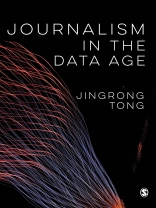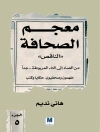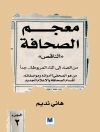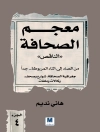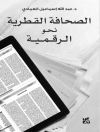This book is your guide to understanding what journalism is and could be in an age of digital technology and datafication.
Journalism today is entwined with the digital. Stories can come from crowdsourcing and content farms. They can incorporate data visualisations and virtual reality. Journalists can find themselves working as self-employed digital entrepreneurs or for tech giants like Google and Facebook.
This book explores the development of journalism in this era of digital tech, and big and open data. It explores the crucial new developments of online journalism, data journalism, computational journalism and entrepreneurial journalism, and what this means for our understanding of journalism as a profession, and as a part of society. Using a wealth of international case studies, Jingrong Tong explores contemporary issues such as:
- AI, Automated news, ‘robot reporters’, and algorithmic accountability.
- Digital business models, from venture capital to tech start-ups to crowd-funding.
- Audiences and dissemination in and age of platform capitalism
- Questions of censorship, democracy and state control.
- Digital challenges to journalistic autonomy and legitimacy.
With clear explanations throughout, Journalism in the Data Age introduces you to a range of ideas, debates and key concepts. It is essential reading for all students of journalism.
Dr Jingrong Tong is Senior Lecturer in Digital News Cultures at the University of Sheffield.
Mục lục
Introduction
The Communication Environment in The Data Age
The Crises of Quality Journalism
Online Journalism
Data Journalism
Algorithms, Automation and Journalism
Entrepreneurial Journalism
Understanding the Audience
Journalistic Autonomy
Journalistic Legitimacy
Conclusion
Giới thiệu về tác giả
Jingrong Tong is Senior Lecturer in Digital News Cultures at the University of Sheffield. Previously, she was Senior Lecturer in Digital News Cultures at Brunel University London and Lecturer in Media and Communication at the University of Leicester. She is also External Examiner for BA (Hons) Communication and Media at Bournemouth University (2018-2022). She has been working in journalism and news media for 22 years, first as a journalist then as an academic. Her work has appeared in prestigious peer-reviewed journals such as Digital Journalism, Journalism, Journalism Studies, Information, Communication & Society and Science Communication. She teaches widely on topics of journalism and digital media and across a range of journalism and media programmes, including undergraduate and postgraduate courses and supervising research and doctoral students. She is Associate Editor of the Chinese Journal of Communication and has served on the editorial boards of Digital Journalism and Journalism Studies. She is the author of two books: Investigative Journalism in China: Journalism, Power, and Society (2011 and 2012) and Investigative Journalism, Environmental Problems and Modernisation in China (2015), co-editor of Digital technology and journalism: An International Comparative Perspective (2017), and co-author of Tweeting the Environment #Brexit (2018) and The Brexit referendum on Twitter: A Mixed-Method Computational Analysis (2021). In her research, she uses qualitative research methods such as interviewing and critical discourse analysis as well as computational methods such as social network analysis and topic modelling. Her current research focuses on the impact of digital technology on journalism, social media analysis, political communication and environmental communication, with a particular interest in journalism and news/social media in the UK and China. She is working on a research project (funded by the British Academy/Leverhulme) that examines the political discourses and practice of media freedom in the UK since 2016.
